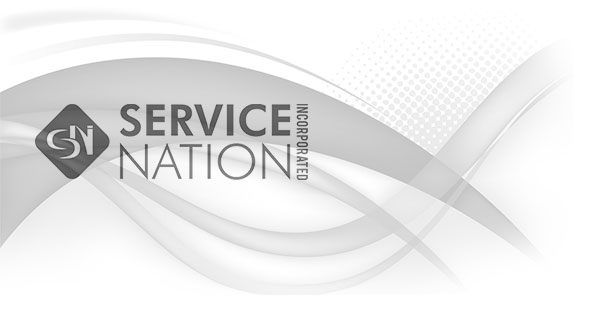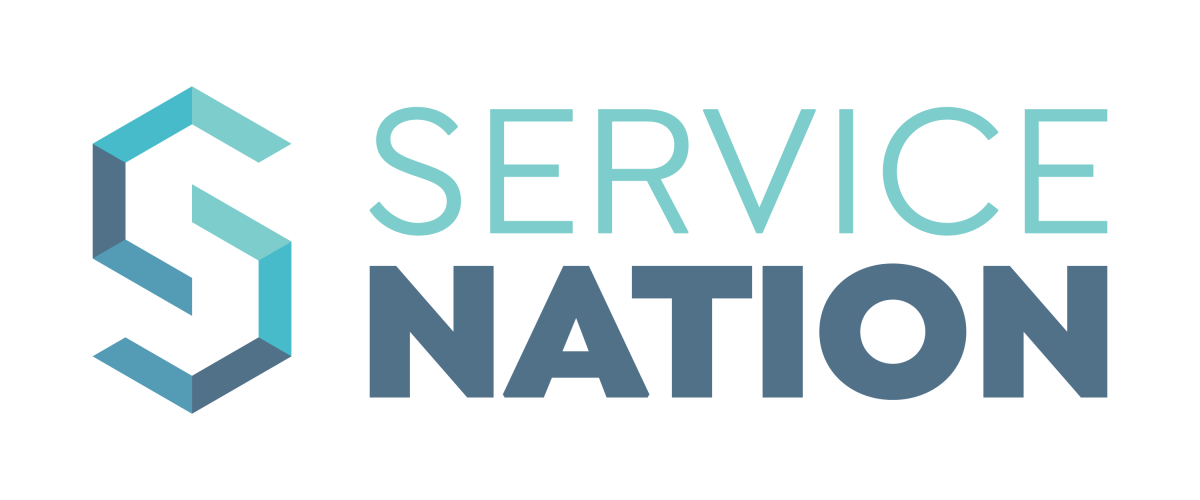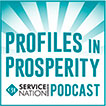
Podcast #11
“Company Aquisition”
Featuring Allan Ferguson
Intro: Welcome to Profiles In Prosperity with your host David Heimer.
David Heimer: Hi, this is David Heimer. Welcome to Profiles In Prosperity. Today I have the great privilege of speaking with the leading residential contractor in Australia; Allan Ferguson. Allan is the President of Omega Services, headquartered in Sydney, Australia. Omega offers the full line of services, plumbing, drains, HVAC, and electrical services. It’s a huge company, very profitable. I should also say Allan is the President of the Service Nation Alliance in Australia. He is the reason why there are so many Service Roundtable and Service Nation Alliance members in Australia. Periodically we get Allan to come to the US and talk to our members. He’s talked at a lot of industry events like the Service World Expo. We love having him and it’s great to have you here with us today, Allan so thanks for taking this time to talk with me.
Allan Ferguson: I appreciate you having me on this podcast David. It’s an incredible honor and I really love, not just this podcast, but what Service Roundtable, Service Nation is all about. I’m very passionate about it and I love this industry. I love to help the industry and anything I can do to help change lives in this industry. I’m all for it.
David Heimer: Well, thank you. So, I thought for the benefit of our audience, it would be good if we started at the very beginning. How did you get into this industry?
Allan Ferguson: Okay, Dave, good question. I got into the industry as a plumber and I did all my trade qualifications and I started off like most contractors started off working for builders and working through an hourly rate which is taboo now for me and just not making much money. And you know I looked back I got into the industry, well I started Omega after doing my trade qualifications around 1986. So, that makes the company about 30 years old now. And we did maintenance, I had about half a dozen guys. I remember we did this for years. Did maintenance, did building, a lot of construction, a few builders came about 2000. I hit the wall after many years of trading, losing money on jobs, several builders and the builders that actually went down were builders that I’d been doing work for, trusted, lost a ton of money. I hit the wall full at full speed and over the years I’ve built up a lot of assets, real estate and I had multiple properties, have beautiful homes and I lost a lot. But basically hit the wall at full speed, as I said, lost everything.
But one thing they didn’t take from me was my company. We cleaned out all the bad debt. I went to live with my parents, I had two young kids at that time. When I say cleaned out, I never declared bankruptcy, I managed to just clean up the mess that all those years of not making money, not charging enough and I started from scratch. In early 2000, I decided to look for another way of doing business. I came to the US before I even met you, David, at a trade show. I started looking for ideas and made the decision that I was going to change my business model to the current business model now, which is a flat rate or standard pricing. I have multiple home services only doing residential and charging enough so that’s just a quick recap of where our company is now and what we’ve done to evolve to that.
David Heimer: So, tell me just a little bit more about your company at this point in time. I mean, I know you offer full services, your flat rate, I saw on your website that you offer something I think is amazing and interesting. You pay the homeowner if you’re late up to a hundred dollars, $5 for every minute that you’re late, pretty impressive. You have a guarantee, you’re available 24 hours a day, seven days a week. So very impressive stuff. How many people are in your company now?
Allan Ferguson: Currently the total staff is approaching 80, which could be just less than that, we’ve had a couple of staff that were with us for a few years have moved on. Maybe I’ll talk about the changing culture in the company and cleaning out some of the people that didn’t want to go in the same direction that the company’s going. But yes, just about 80 staff. We have plumbing, electrical, drain cleaning, heating, cooling, hot water and I think at the moment we’re about just shy of 60 vehicles on the road. We haven’t had as much growth in the last year that we’ve encountered in the last 10 years. But we’ve gone from about 1 million to just short of 15 million. This year we’ll probably end up around 7, 8 million with the current trajectory. And it has been a very profitable business over the years. Although my focus has been more about slowing down the growth and focusing on profit, that’s probably the biggest growth area we’re going to go through right now is chasing net profit rather than chasing revenue.
David Heimer: Very good, very impressive. So, I think I first met you at a trade show in the US in 2007 I think might’ve been 2006. And one of the things I remember that impressed me was that you regularly visit the US to see what’s new here, what products, what practices, what ideas you can take back to Australia to create a competitive advantage for your company. I thought it was an impressive idea. But it also impressed me the time, the money, the effort that you put into that. So, I’m kind of curious, what have you been able to bring back and what has that done for your company?
Allan Ferguson: That’s a great question and I suppose I’ll turn the clock back before I decide to physically get on a plane and travel 20 hours. You could say for me to get to the east coast is about 20 hours from Sydney. But what changed my thinking and my business was becoming friends with competition. Okay, so getting to know other plumbers that we would treat as, they were our competitors and talk to them. I thought, well; why not try to get to know these guys? So, I actually became very good friends, and I’m still good friends to this day with some of the larger companies in Sydney and it was my very good friend, Scott {inaudible 07:13}, who said, “Allan, why don’t you come to a trade show?” I go to them all the time, some years I’ll come six times into the US and I know you’re thinking, long way to travel. But it’s worth every minute of that plane trip is not and I enjoy sitting back and watching movies. But I’m coming to learn and I’m bringing stuff back that no one in Australia is doing. A bit different now they’re all doing it because I’m actually passing on all the great ideas and the information I learn I pass on to other contractors here in Australia. But it changed my life, David.
David Heimer: That’s a good story. One of the things that I’ve heard from other people that you’ve talked about is that you were quoted as saying that “The leader of a residential service company must be in charge of marketing, essentially he or she has to be the chief marketing officer.” Why do you say that? And what duties do you see that position entailing?
Allan Ferguson: Well, one of the areas that I took seriously to grow my business was marketing and then I’ve got a fellow by the name of Dan Kennedy, if anyone hasn’t heard of Dan Kennedy look him up. But he talks a lot, and I’ve listened to him talk many times often saying that the owner of a business should always control the marketing and the checkbook and there’s something else he threw in. Maybe it’s legal as well, but just because the owner is controlling, the marketing doesn’t mean he’s in there and doing it. It’s a bit like, you know, to grow a residential service company, the owner of the business if the business stops, you adjust yourself and then it grows. So there’s basics that need to know as you grow that business and just because you control the marketing doesn’t mean that you’re doing it.
So look, it’s just to me, it’s that important. I’ve heard other mentors saying that marketing is everything and to me, it is. So just think about this, if you have no idea about marketing and you bring in someone in your company as say, a marketing manager or marketing director, how do you lead that person? How do you know they’re actually doing their job? Look, if I suppose there are some companies out there that have got this, they’ve used external help and they get all the leads they need, but that’s just my belief, I’m not right with everything.
I’m sure I’m not right with hardly anything, but there’s some things that I have such a strong belief in and marketing, I love marketing. I live it. Unfortunately in the last few years have stepped away from marketing and allowed others to do it, and it’s now become a weakness in Omega, that may be not the main reason we stopped growing. I think we had to consolidate and clean out some issues in our company. But I’m actually getting back into the lead with marketing, I’ll bring on a marketing director who I will mentor maybe for the next 12 months. But that is not going to be a weakness in my company, it’s going to be a strength.
David Heimer: Okay. So, how would you like, and I don’t want to dig in too much into the depths of this, but for the company of your size, clearly you can’t be doing all of the marketing. So, with all the other stuff that you have to do, you can’t be designing web pages and creating direct mail pieces and that kind of stuff, but you are the leader of the marketing. And so how do you get involved? What’s the level of depth that you get involved at?
Allan Ferguson: Good question. When it comes to the design, I’ve got people, our marketing department has a full staff and that department doesn’t just do the Omega home services. It also helps other contractors in Service Nation. So, I have people that are very good with graphical stuff, and I have people that are very good at working the budgets and working out where the dollars should go. I’m always watching over and as I said, Dave, I’ve stepped away from the marketing. We still got plenty of calls and I have a very good external guy as well. Grant Harris, who’s been doing our website work and helping us with our pay per click. He’s amazing. He does a fantastic job.
But that probably accounts for less than half of our leads. But to me, the focus for me at the moment, and this is a weakness for me, in our AB group call yesterday, I talked about how we become lazy here at Omega because we managed to get new customers on board at a very low price. I mean, I can bring a new customer in, at a lower cost than it does to maintain an existing customer. And, you know, one thing I know with all the great companies that I work with in the US they all do a phenomenal job of marketing to their existing customers. We’re not so good and it’s probably where I’ve dropped the ball.
So David, to answer that question, I need to have different people in different – even in my marketing department, it will probably be, with the new person coming on, it’s going to be five people in there. Each person is going to be responsible for different things, the design work, the planning, the budgeting, deciding where we’ll put our dollars and all of that. So, it’s like a department, like a service department, you have to pick what person is doing what. Does that make sense David?
David Heimer: Yes. You alluded to some changes in your company, and you sort of mentioned that lack of fit in the company culture, some changes you wanted to make to the company culture. Do you feel comfortable about talking about any of that?
Allan Ferguson: Absolutely. Look, I’ll talk about whatever you want to talk about. So just everyone that’s listening to this podcast, just look at your business now and look, I don’t think growth doesn’t happen in a straight line, growth happens, it’s an up and down graph. Now we’ve hit a wall with the growth in our company, and this is the first time we’ve grown consistently at better than 30% per annum for 10 years straight. So that’s gone from 1 million to just short of 15 million last year. Now the people that got me to where we are now and the things we’ve done to get my business to where it is now, it’s not, what is going to take me to the next level. It’s all changing. Okay, I’ve got some good people in my business. But I had some staff that had become complacent. They got comfortable with their earnings and it’s time for a cleanup.
So the biggest thing that I did to rock my business was, you know, we talk about now and I’ve got Joe Cunningham right now he’s in training all my technicians, just for those of you that know Joe. He’s here in Sydney, so I have him for a while, but we had to work out how to keep growing the business. Recruiting is a problem. It was Joe that said to me, “Allan, you need to start training non-plumbers, non-electricians, and train them how to actually go out and sell air conditioning systems, plumbing systems.”
Now with the existing staff, it was why I had my service manager and some of my key staff that had been with me for a lot of years. He said, “No way, you can’t do that. You can’t bring guys that are not plumbers or electricians in and train them. That’s just wrong. We’ve done three years of {inaudible 15:02} and these guys kicked up a storm and I basically had made the decision we’re growing our business in this particular direction and those guys, they did a lot of damage on the way out. But they’re gone now and I’m glad they’re gone because they were going to hold the business back.
Currently, our number one sales tech he’s tracking probably 2 – $3 million in sales a year. He’s not a plumber or an electrician or HVAC tech, he’s a carpenter. So, that’s probably done the most damage. But the lesson for me, Dave, is just to understand the staff that have got you to where you are now may not be the staff that gets you to where you want to be.
David Heimer: Excellent point. So, Allan, I think this is probably a good place for us to wrap up. This has been a fascinating discussion. I’d like to come back to you at some point in the future and revisit some of these things and see how the changes have worked out for you and hear what other interesting things you’ve got going on. So, thank you so much for taking this time to talk with us today, it’s been a lot of fun, always interesting to talk to you. And you’re going to be here in January talking to the Service Nation Alliance members so I’m looking forward to seeing you then as well.
Allan Ferguson: That’s right. So just on that, David I’m sorry, I won’t take too much longer. I know you are trying to keep these podcasts condensed, which I love by the way and I’m absolutely honored that you’ve invited me. But so I’m about helping contractors, electricians, HVAC to add a plumbing division, especially a drain cleaning division, because I can tell you that anyone that’s doing drain cleaning, drain repairs, trenchless, it is without a doubt, the highest margins you can get in this industry.
So, I’m all about helping non-plumbers to actually add a drain cleaning division. I’ll talk about anything, but I do cover marketing. Leadership is a big thing. I’m part owner in a leadership development company. But leadership, marketing operations to actually add that extra division. And I tell you now, anyone that is thinking of adding a drain cleaning division and wants to chase incredible high gross margins please come and join me in Dallas. And I’ll think it’s 16th and 17th, but I’ll spend two days covering everything whether it’s the business owner or whether it’s the technicians. It doesn’t matter much to me, I’ll share whatever the group wants to actually help them transition and have a very profitable, drain cleaning division, but it doesn’t have to be about that.
David Heimer: Sounds good. Alright, thank you so much, Allan. I will talk to you again in the future. Bye-bye.
Allan Ferguson: Cheers my friend. Bye.




 (877) 807-0869
(877) 807-0869 Member Login
Member Login

